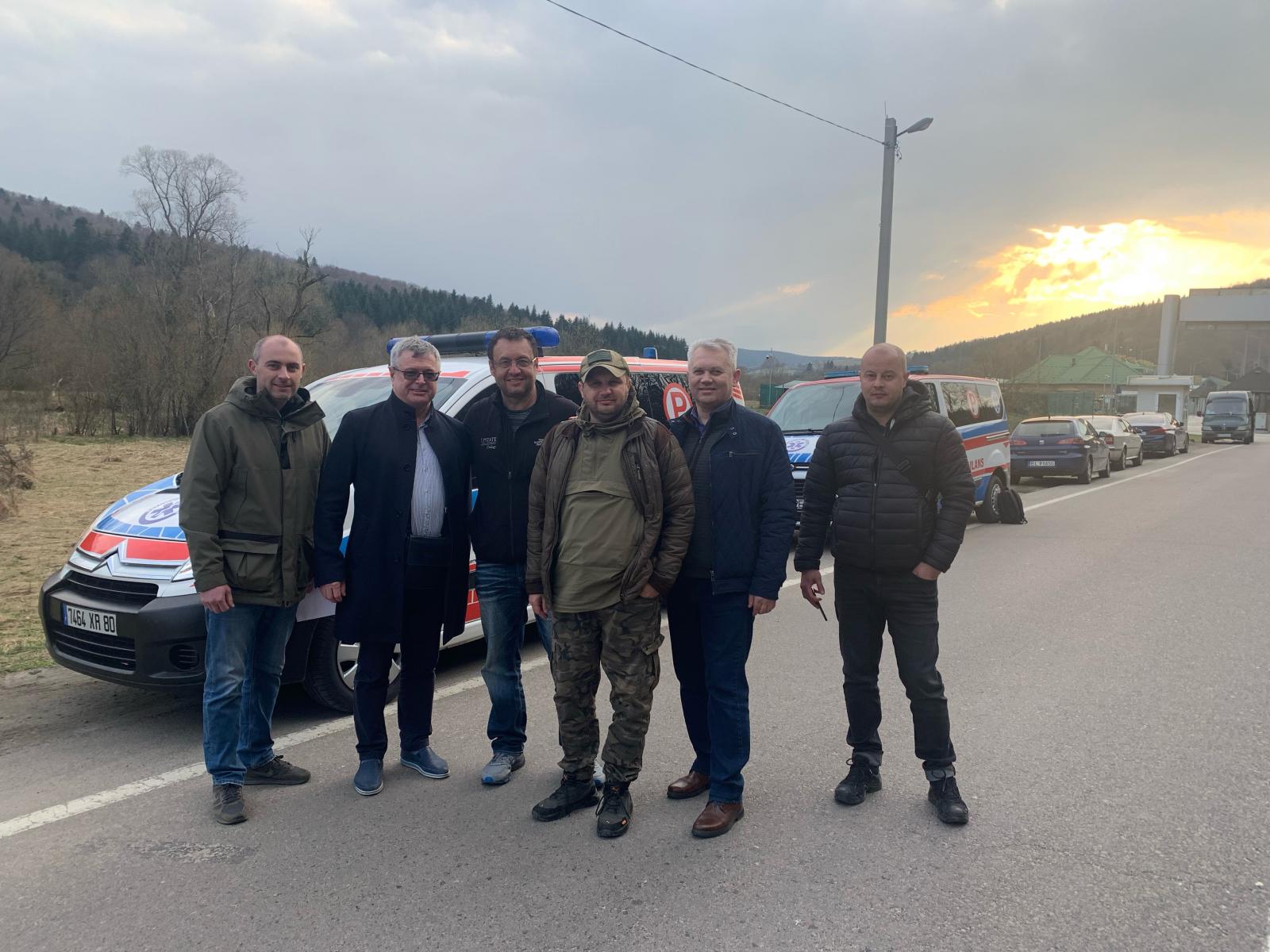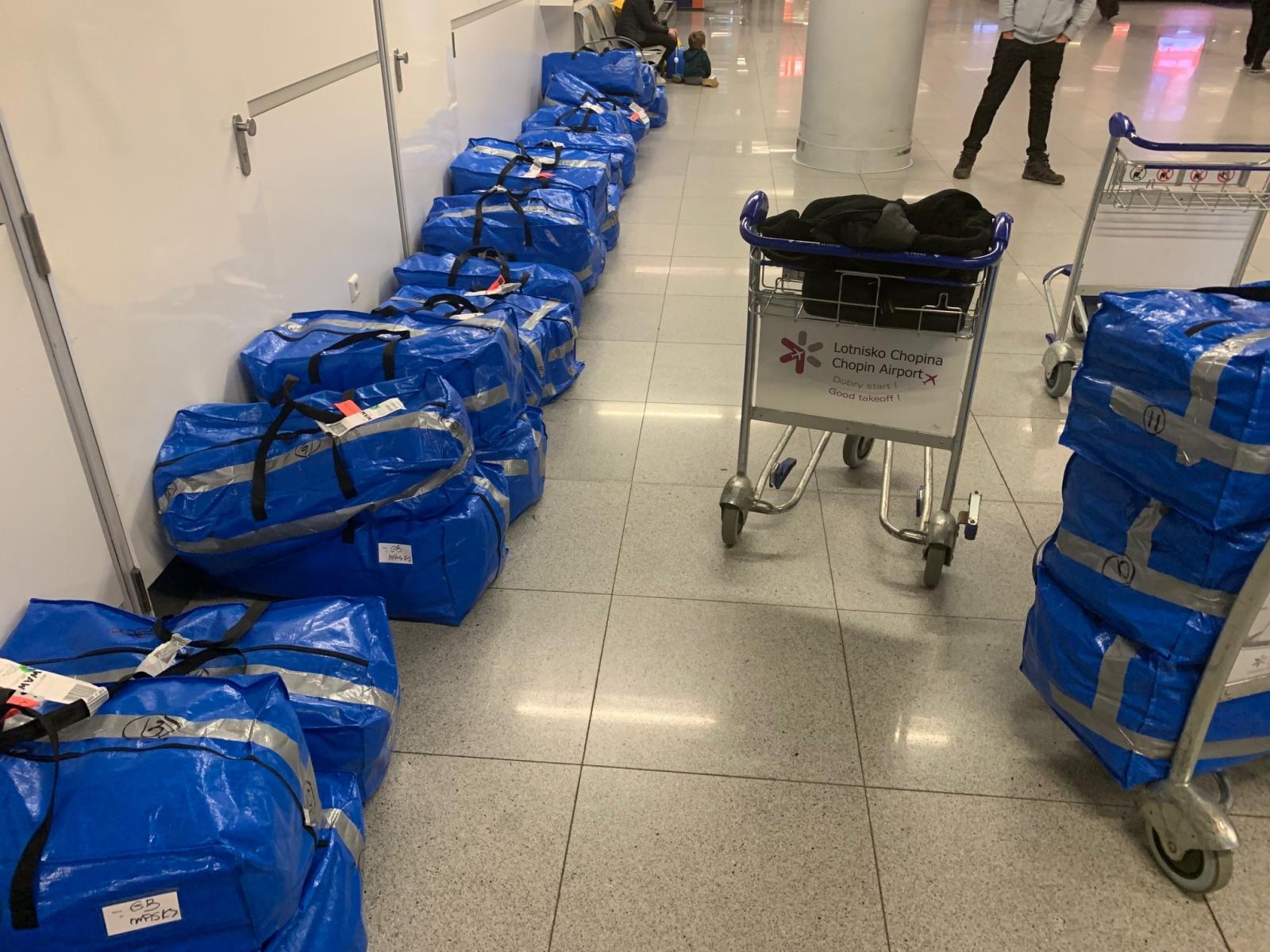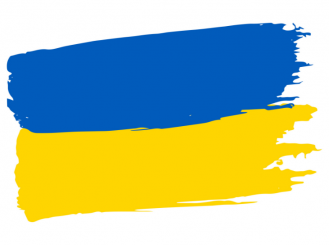May 19, 2022
By Katherine H. Crawford, MA, PMP, ASCO Communications
In response to the war in Ukraine, ASCO member Gennady Bratslavsky, MD, and Alex Golubenko, MS, DPT, CWC, CWT, two friends who grew up in Kiev and now live in the United States, formed Help Free Ukraine and used the proceeds from their fundraising efforts to purchase two ambulances for patients in Ukraine. Dr. Bratslavsky, chair of the Department of Urology and a Phillip Capozzi, MD, Endowed Professor of Urology at SUNY Upstate Medical University, sat down with ASCO Connection on May 9, 2022, to share his story. He described how what began as a collection of medications for patients in Ukraine expanded to a request for first one ambulance and then a second. Using funds from Help Free Ukraine and sales of work created by his wife, artist Katya Bratslavsky, he was able to purchase two ambulances, which he helped deliver in person to Lviv, along with critical medications and supplies.
How did you get the idea of purchasing two ambulances for Ukraine, and who did you work with on this venture?
GB: It all started with an email from Charita Shteynberg, who founded the [nonprofit] World of Connections program. She wrote, “There is a volunteer in Poland who has requested an ambulance—can you help?” I asked her how she knew this person, and she said she’d worked with him for a little bit, and he seemed to be straightforward. We connected, and I asked who the ambulance was for. He said it was for Lviv Oncologic Center. I said, “Are you a physician?” He said, “No, I’m just a volunteer. I’ll help you get it if you agree.” I asked, “So how does it work?” He replied, “Well, you just send the money or send somebody with the money, and I’ll bring the ambulance to you.” I thought, Well, that’s one way to lose money.
So I said, “Is there anyone at Lviv Oncologic Center that I could talk to?” and he gave me the phone number for a physician, Bohdan; I called him, and he thought it would be a great idea. He then connected me with the head of the center, who said, “Yeah, we actually have so many people who have relocated to Lviv, that we have enormous trouble with logistics and patient transportation.”
This was a time to just trust people because at the end of the day, who knows who you’re talking to? You don’t know these people, you don’t know their numbers—it could have been a volunteer and his brother and his other cousin telling you who they are. But you just realize that this is an important thing.
As I was planning the trip to Lviv, I was talking to my best friend who is a pediatric trauma surgeon in Kiev, at a place where I did my rotation as a nursing student 30 years ago [Baby Medical Center and Kiev Children’s Hospital #2]. I was telling him I’d be coming and bringing in an ambulance to Lviv, and he said, “Oh! We need one, too!” I called the volunteer and told him now I need two ambulances. And he’s like, “Okay!”
He went to some dealership that sells ambulances, and apparently he had some experience with cars to make sure that they’re drivable. He [did a WhatsApp video call with me], and he’s showing me a bunch of ambulances, saying, “I’ll buy them at a good price for you … just have the money brought,” because the dealer wants cash. We moved the money, and we arranged to get it to the volunteer through a friend in Bratislava.
At this point my friends think I’m totally crazy, and I said, “Listen: it’s time to trust people. My responsibility is buying ambulances; we’ve got to do it—people need it.” They said, “Fine—we’re sending somebody with the money.” So they went and gave the money [cash] to the volunteer.
The day I arrived in Poland, the volunteer was there with the ambulance, ready to help me push all the bags [of supplies] inside of it. We filled the ambulance, and I said, “Where’s the other ambulance?” He told me, “The other one is already on the border; you’re going to be driving there, and my cousin is going to help you register it, because you are now going to be an official owner of the ambulance.” So I was official owner of the ambulances for about 6, 7 hours as we were getting through customs and then working with brokers. These guys helped do a lot of the logistics. I needed to meet him by the border at 8:00 AM, so I had to leave at 3:00 AM, driving a six-speed standard transmission ambulance with all of the goodies to meet his cousin—somebody I’d never met before—a businessman, who has permission to cross the border because he has three young children. I essentially was traveling 5 hours in the darkness to meet someone on the border in some parking lot, so this is a time when you just say, “I’m taking a risk," and you have to trust people.
About 10 minutes before I arrived, [the businessman] called me, and he said, “I hear you’re driving an ambulance? I’m going to be meeting you in this parking lot,” and he told me the meeting spot. We met in the parking lot, and here was this other person named Petro with the other ambulance. He’s like, “Okay, we’ve got a lot of work to do.” He stuck with me through every part: we have to go register—brokers, European Union sign-out, sign-in, purchase forms, customs, humanitarian aid forms, and then going through several stops, and then eventually making it across the border.
At the border I was joined by two urologists for the drive to Lviv. When I was talking to the head of the Lviv Oncologic Center and making this plan he told me that he shared with his urologists that, “There’s a crazy urologist driving ambulances across the border.” These urologists apparently knew me because I frequently give lectures in Kiev at oncological conferences, so he told them he wanted them to come and spend time with me while I drove to Lviv. Because the schedule was extremely packed, these doctors—the head of the urology department and the center’s deputy director—drove from Lviv to meet me, and then we spent a good couple of hours in the car getting from the border into Lviv. This was our time together to communicate, to share, hear stories, for me to sharpen up on my Ukrainian—which miraculously returned to me after more than 30 years of living in U.S., because I speak Russian at home—and for them to tell me what they do and how they do it. It was basically 2 hours when we could really grow together; the further into Ukraine you’re moving, the closer you feel to these people, and then getting through the checkpoints with them makes it almost feel like you’ve known them for a long time.

Dr. Bratslavsky, third from left, right after crossing the border into Ukraine, with colleagues from Lviv Oncologic Center who joined him for the drive to Lviv with the two ambulances he had purchased. One ambulance was bound for Lviv Oncologic Center and one for the Baby Medical Center and Kiev Children’s Hospital #2, where Dr. Bratslavsky did his clinical rotations in the early 1990s as a nursing student. Photo courtesy of Dr. Gennady Bratslavsky.
How did you deliver the ambulances and turn them over to the center?
GB: Interestingly, we were barely within the curfew, so the whole exchange and handshake occurred in the middle of a dark street, literally, with no streetlights, just a couple of drivers. You essentially just give the ambulance, give the key, give the paperwork, and you’re like, “You guys are all set.” A handshake and you go.
Of course, I was invited to come the next day to Lviv Oncologic Center, but I had so many deliveries of the supplies to make, and so many people were coming to meet me at my hotel to pick up either individual first aid kits, or suitcases of supplies, or bulletproof vests that I just never made it to the Lviv Oncologic Center—there was no time. As much as I wanted to get hugs and kisses from all of the faculty there, the nurses, and the people all in the institute, there were many things we needed to do.
We’re planning another round of ambulances, and I’m going to reach out to [Lviv Oncologic Center] to see if one is enough or do they need another one, because they have this enormous burden of serving so many people who kind of got centralized in Lviv. We’re talking about millions of people just looking for a bed to be further away from the Russian aggression.
You also brought with you 140,000 pounds of medication and many other supplies—how did that initiative come about?
GB: There were several supplies that were part of this trip. By far the largest and most important one was delivery of 140,000 pounds of medication—a donation from [a Cipla pharmaceutical company] to World of Connections and then help with transportation from Tunnel to Towers, an organization that was formed after 9/11, and help from other organizations. As we were sitting down and collectively working on logistics, distribution, and trying to figure out which hospital needs what, we were hitting many snags and unpacking and repacking things just because we could not get access to this medication in the United States, since it all went through the U.S. military and was housed in a military warehouse and brought in by military plane. Due to security reasons and access, this whole plane ended up in Poland and then Lviv. A lot of the spreadsheets were perfect in theory, but when the supplies ended up on the ground in Lviv, unsorted, that introduced its own degree of chaos.
My friend Alex Golubenko and I had been purchasing the other supplies directly through vendors or dealers here in the United States with money that was mostly raised by my wife through her art. We purchased hundreds of individual first aid kits (IFAKs), sometimes looking for certain components from more than one vendor, as these are very complex kits containing not only tourniquets but a chest wound seal; QuickClot®, a substance to help with catastrophic bleeding; something known as an Israeli bandage that allows for compression of a damaged extremity; medical scissors. These are very different from the IFAKs that you buy on Amazon when you go fishing and you cut your pinky with a little fishhook. These are the IFAKs that are lifesaving measures for first responders.
We also bought gas masks from a dealer in Idaho and had everything transported to New Jersey to my brother-in-law’s garage in huge pallets and boxes. We needed to meet the time crunch, trying to organize and coordinate delivery of medications, purchase and delivery of ambulances, as well as purchase and delivery of these crucial supplies. On the Sunday before I left, my whole family—my three children and my brother-in-law’s three children—were unpacking boxes of goodies and adding certain components to the IFAKs. There were many volunteers working on other IFAKs in other warehouses, all trying to coordinate to bring everything into one place, with additional coordination of what needed to happen in the airport to check in the dozens of duffel bags containing all of this stuff. My friend Alex had been able to buy, again with our funds, satellite phones. Satellite phones are the ones that work independently when Russia has jammed the Internet. They’re exceedingly expensive—over $3,000 per phone—and we needed 60-minute [prepaid calling] cards that cost a few hundred dollars, but the connection is through the satellite, so medics, paramedics, frontline responders can communicate when the Internet is down.

The dozens of duffel bags containing supplies—medicine, emergency responder first aid kits, bulletproof vests, satellite phones, and more—that Dr. Bratslavsky, his family, and fellow volunteers packed up for delivery to Ukraine. These bags were shipped to Warsaw Chopin Airport, loaded into the ambulance he purchased, and transported to Lviv. Photo courtesy of Dr. Gennady Bratslavsky.
All this was jammed into one trip: ordering, delivering, wiring the money, coordinating the delivery of ambulances, their purchase—it was kind of a multi-pronged approach with so many wonderful people who I had never met before but now stay in regular contact with, just because you see how selfless they are doing all this. I managed to make a mistake by offering money to the second driver [of the ambulance], for which I was told that this would likely be considered a big offense, stated to me in a very friendly fashion. This is after he spent an entire day away from his three small children while he could be running a successful business. This stranger, Andriy, who contacted me in the first place about the ambulance turned out to be the warmest, most caring human. But it all had to start with trust in these times, even though we all know there are huge risks right now.
It was an interesting trip. And by the way, feel free to put it on record: I was afraid driving for 20 hours into the war-torn country. But there are people truly doing amazing things out there all the time, and, like I said, it is a time to trust people.
Find more resources for physicians and patients affected by the war in Ukraine.

